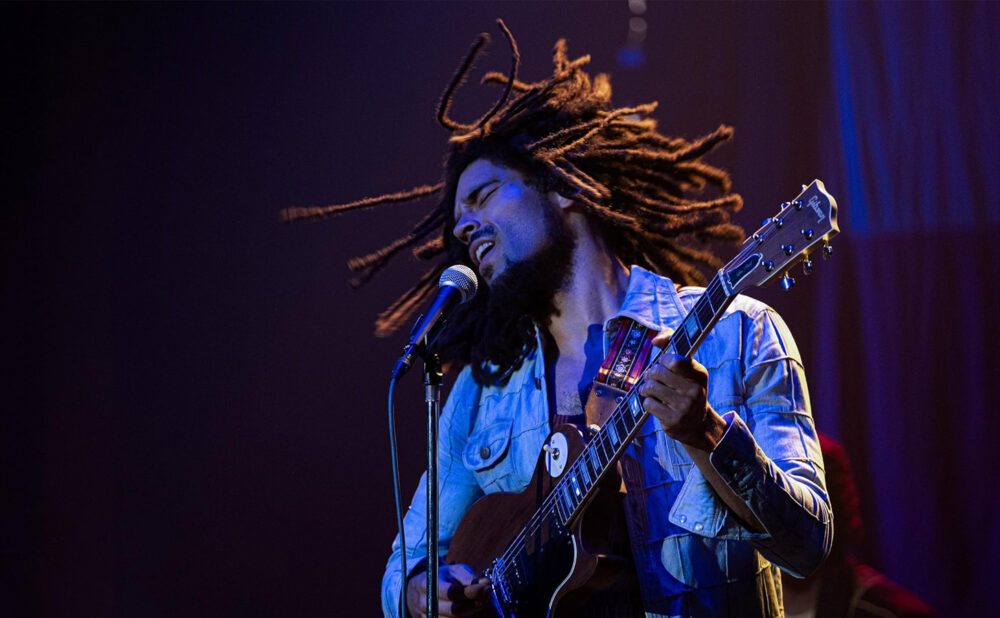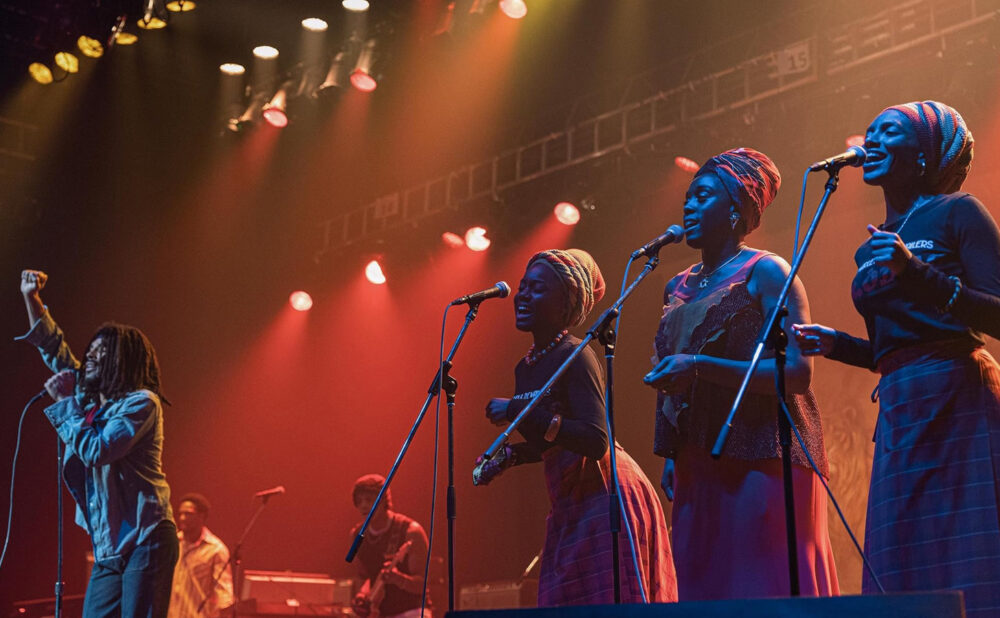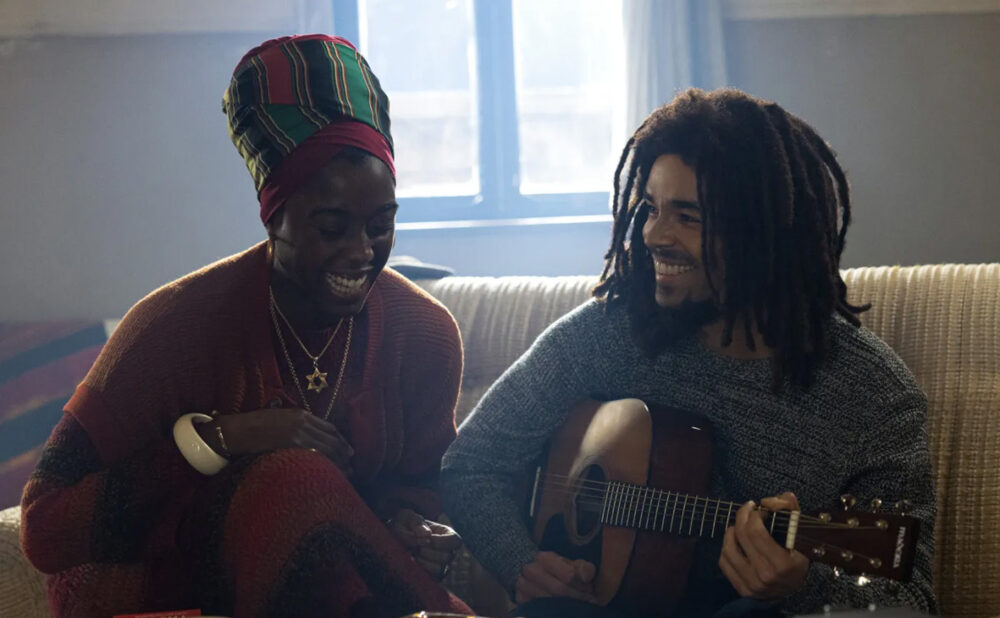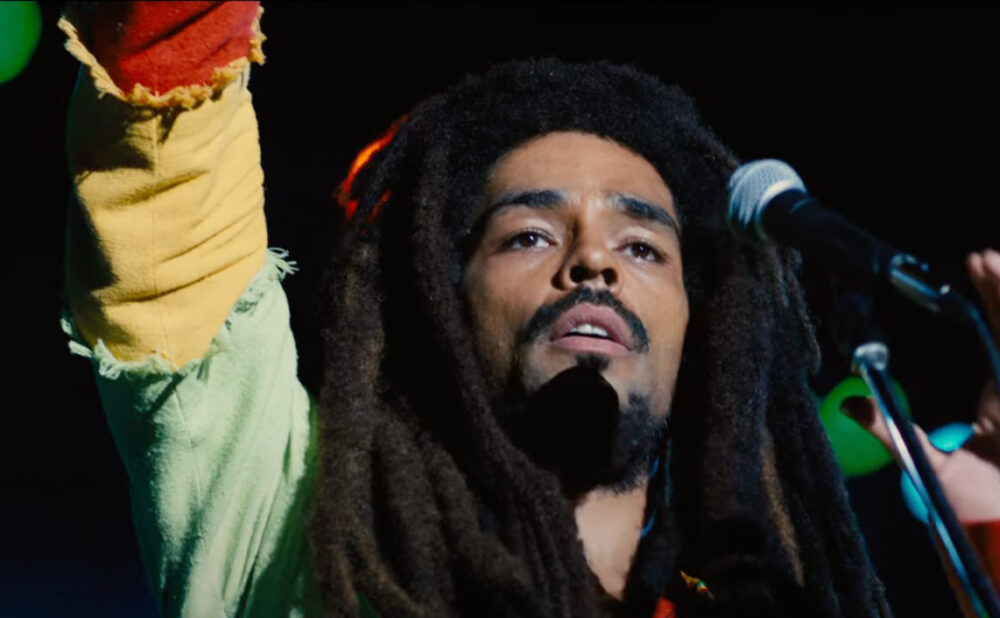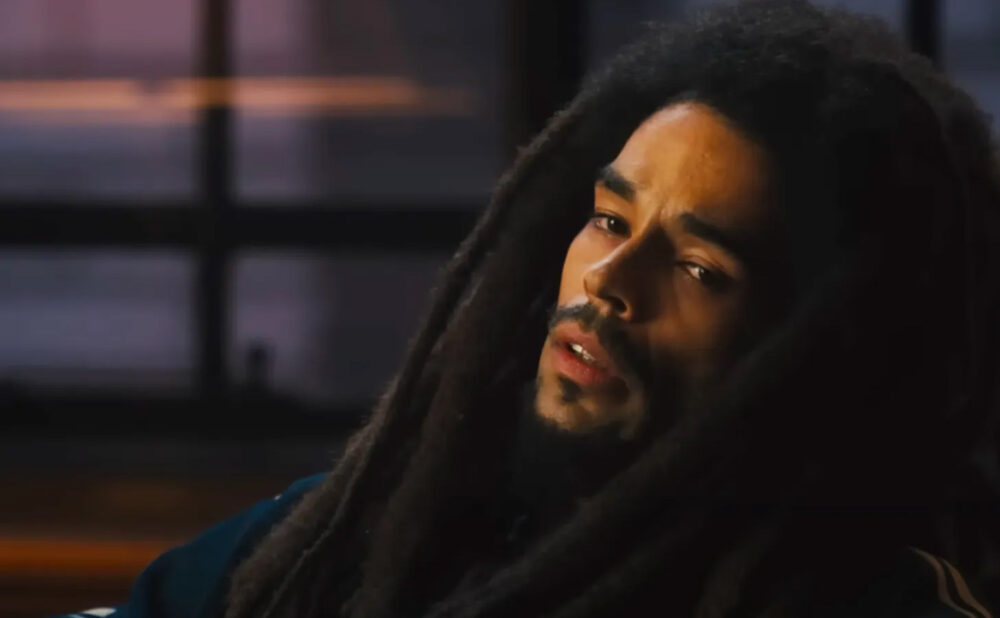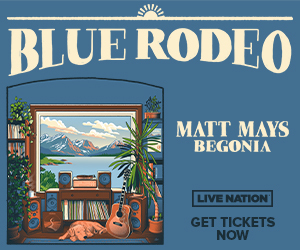Review: ‘Bob Marley: One Love’ among best music biopics ever
Reggae superstar’s story rings true in authentic big-budget telling
Bob Marley: One Love
Where: In theatres
What: Movie, 104 mins.
When: Wed., Feb. 14
Genre: Historical drama
Rating: NNNNN (out of 5)
Why you should watch: An uplifting and authentic, big-budget look at a tumultuous time in Bob Marley’s life as he survived an assassination attempt and was about to have his biggest commercial success.
BOB MARLEY gets the high-quality film he and his legacy deserve with Bob Marley: One Love. It’s a satisfying major Hollywood production from Brad Pitt’s Plan B films, deftly helmed by King Richard (2021) producer and director Reinaldo Marcus Green.
It’s a big-budget blast of exuberance that also tells the tough story of Marley’s near assassination in turbulent mid ’70s Jamaica and the key years of 1976–78 — from his shooting, days before the Smile unity concert, to his highly creative self-exile in London, where he wrote and recorded his breakthrough album Exodus, his triumphant return home and his ultimately fatal battle with cancer.
The Marley family, including wife Rita, was deeply involved in the film’s production with Ziggy and his sister Cedilla on the set every day. But the film rises above hagiography and, while respectful, feels like an authentic telling of Marley’s tale. Even his “womanizing” is mentioned though it’s made clear in a fantastic sidewalk squabble scene between Bob and Rita that she has her own extracurricular activities in a relationship that today would be described as polyamorous.
Kingsley Ben-Adir is great as Bob Marley, ably handling the authentic patois dialogue and masterfully mimicking the singer on stage. I saw the tour shown in the film when it played Toronto Convocation Hall, and Ben-Adir perfectly captures the lithe, twisting, mesmerizing moves of Marley, one of the greatest, most charismatic front people ever.
Most of the musicians playing Marley’s backup band The Wailers are the sons of the original members and the music-making scenes in One Love are as compelling and as revealing as the real-life scenes in Peter Jackson’s Beatles doc, Get Back. The recording and performance scenes alone make this a satisfying film, but strong acting throughout and an action-packed narrative are far from filler.
The film is bookended with Marley’s appearance at the Smile concert at the beginning and the triumphant One Love concert at the end. The latter is where he famously clasped together the hands of bitter political rivals Michael Manley and Edward Seaga in front of a stadium roaring its approval. Rastafarianism is depicted respectfully and informatively at the insistence of the family who also required Marley’s advocacy for Pan-Africanism be shown. Marley ends up furious with his manager’s insincere and inept efforts to set up an African tour as worldwide demand for the band was skyrocketing.
Rather than the usual biopic depictions of rock-and-roll excess and addiction, we get Marley and the Wailers jogging and playing soccer in London parks and having spiritual discussions. Ganja is, of course, ever present with Marley and the band running afoul of London cops for smoking a joint outside of a Clash club gig.
Scenes of Marley’s family life and being a dad humanize this larger-than-life figure while his actions and art, as shown here, justify his iconic status and generation-spanning influence.
Bob Marley: One Love immediately moves near the top of the music biopic chart — though not quite as magnificent as Elvis, it ranks higher than Ray, Walk the Line or Bohemian Rhapsody, light years ahead of Rocketman.

